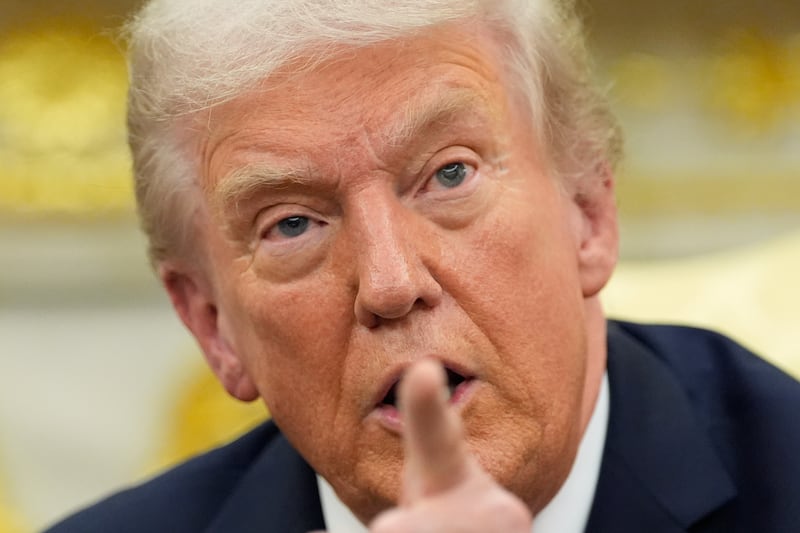Recently, Rep. Marc Veasey, a Democrat from Texas, promised to introduce articles of impeachment for Attorney General Pam Bondi and FBI Director Kash Patel. But the real target should be the person who is directing both to take steps in violation of the U.S. Constitution. That person is President Donald Trump.
The president should be impeached and removed from office because he misconstrues his role as the chief executive and directs his subordinates to do the same. Repeatedly, Trump has claimed his job is to protect the nation. For example, in justifying blowing up a Venezuelan boat, he claimed that “we have to protect our country.” In issuing his executive order on deporting immigrants, Trump said he was “protecting the American people against invasion.”
But Trump did not swear an oath to protect the people or the nation. Twice, he swore an oath to “preserve, protect and defend the Constitution of the United States.”
How has he violated that oath? He has deported thousands of people while skirting due process, destroyed Congressionally approved agencies, and withheld Congressionally appropriated funds. He has sent the military against the American people in U.S. cities in violation of federal law, sought to punish his enemies through government power, and fired federal government employees illegally.
Why is faithfulness to the U.S. Constitution rather than the people so important? As the governing document of the nation, the Constitution allocates and limits powers to the various branches, including the executive. It defines what is to be done and by whom. When a president implies that he has some special responsibility to the nation above the Constitution, our governing document becomes meaningless. That is why the Framers compelled a president to swear an oath to uphold the document.
The oath of the president obligates the executive to remain within the parameters of the Constitution and therefore defines the difference between a constitutional democracy and a dictatorship. Dictators do not talk about defending a document that limits their powers. Rather, they find ways to convince citizens that their powers need to be expanded so they can become even more powerful. That way they will not be challenged successfully by other branches or by the media or even the public generally.
Before taking his oath of office a second time in 1793, George Washington said that if he violated his oath of office, he should incur “Constitutional punishment” and “be subject to the upbraidings of all who are now witnesses of the present solemn ceremony.” Trump should receive “Constitutional punishment,” which means impeachment and removal from office. And those who witnessed his oath taking in January of this year should “upbraid” him by inflicting that punishment.
Impeachment and conviction are extremely serious acts because the election of a president is overturned. However, its place in the Constitution is an indication that the Framers realized that even a president may no longer “preserve, protect, and defend” the Constitution and therefore must be removed from office or risk danger to the Constitution and therefore the republic. Such an act should be rare but available, if necessary, to save the Constitution.
It is incumbent on members of Congress, who took a similar oath to defend the Constitution to follow the admonition of George Washington and begin the impeachment process that the Framers intended when a president no longer upholds the governing document. Only through this action can members of Congress — Democratic and Republican — uphold their own oaths of office to “support and defend the Constitution” and preserve our constitutional democracy in the face of a potential dictatorship.


